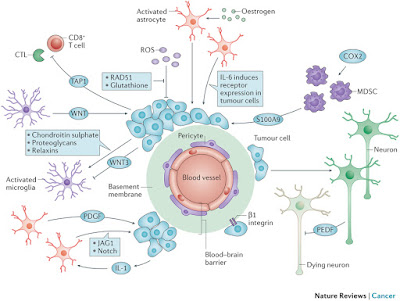Specific mutations in the DNA of men with metastatic prostate cancer have been shown to play a larger role in the disease than previously thought. Researchers hope that this finding will help change standard therapy guidelines and open the door to drugs currently being used for other cancers.
The new study, published in the New England Journal of Medicine, examined inherited mutations in DNA repair genes.
These gene mutations were already known to occur more frequently in prostate cancer patients than the general population.
However, the present study demonstrated that mutations in DNA repair genes were even more prevalent in people with metastatic prostate cancer, specifically.
 |
| Gene mutation research gives a new perspective on prostate cancer. |
Source: medicalnewstoday


